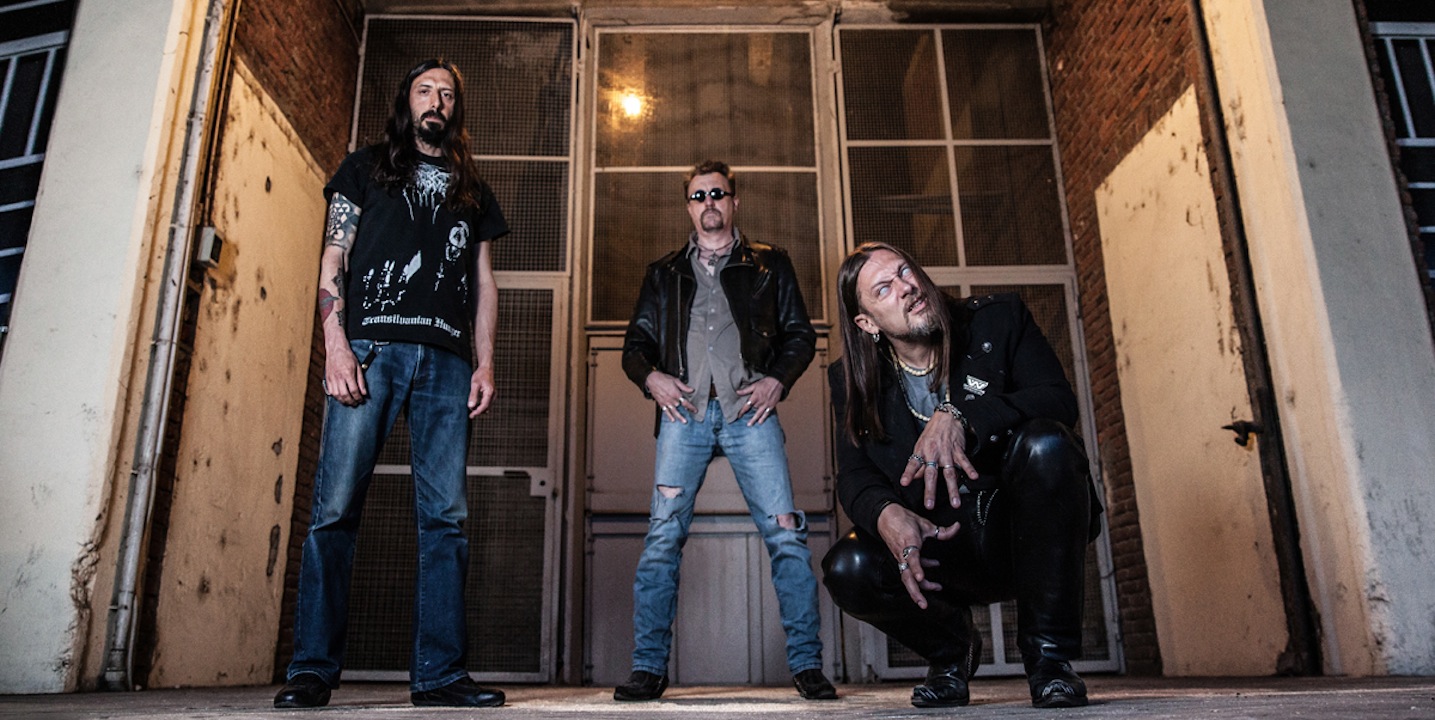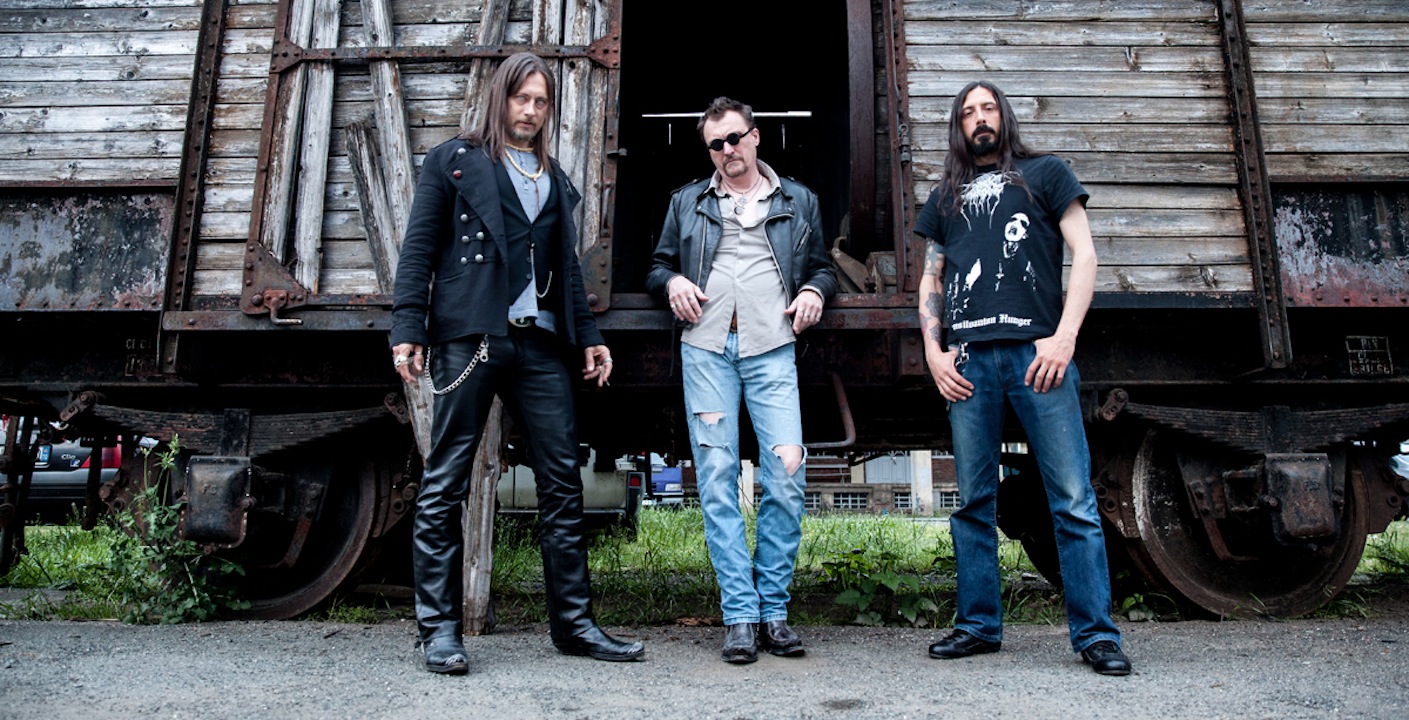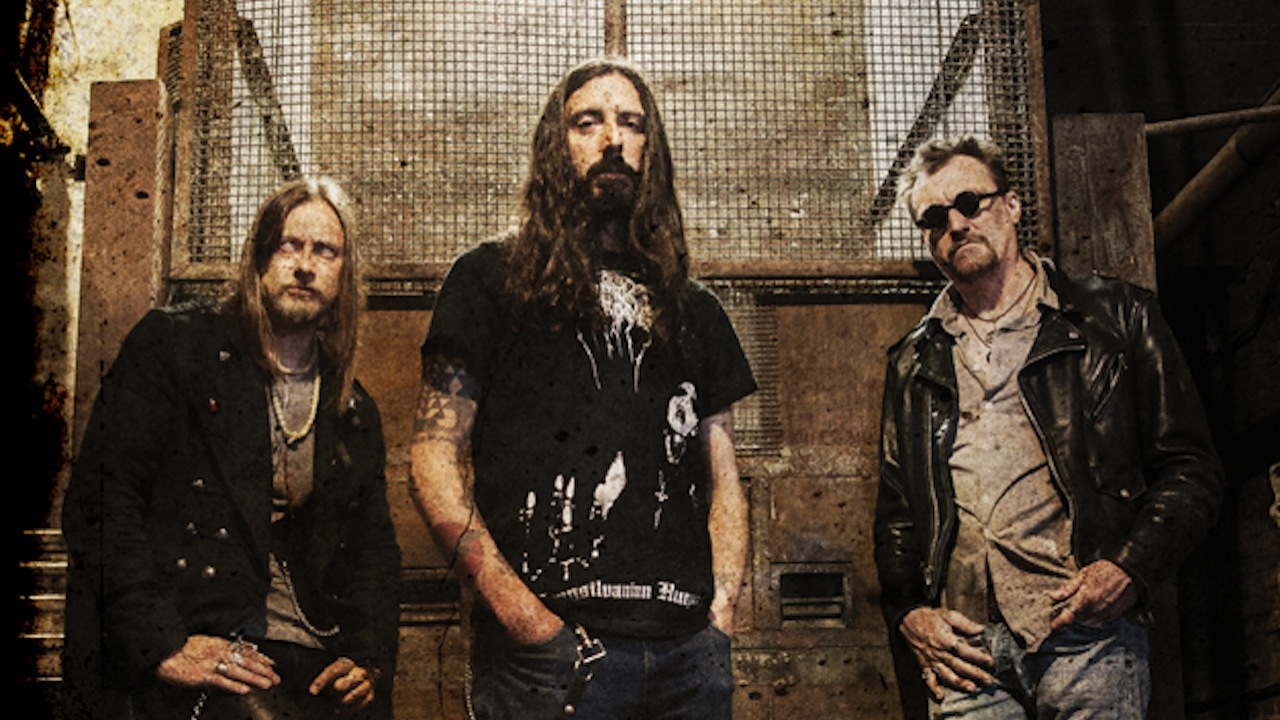Heavy music is a many-splendored thing, fertile with disparate approaches and viewpoints and splayed across an infinite spectrum that encompasses everything from the cheapest of thrills to the most unfathomable of depths. It is to the latter that Italy’s Nibiru have nailed their psychedelic colours: yet more proof, perhaps, that the liberated ideologies of the metal underground enable real magic to happen.
Predicated on an ethos of improvisation and questing intuition, this freewheeling trio have only recently emerged from the shadows of the doom and psych scenes, but since their formation in 2012 they have already produced three albums that are as mindblowing and transformative as anything released in the 21st century.
With lyrics sung in the Enochian language of 16th century occult philosophers John Dee and Edward Kelley – who believed they could communicate with angels via a ‘scrying mirror’ – the music on Caosgon (2012), Netrayoni (2013) and now new opus Padmalotus seldom conforms to any stereotypical doom formulae. Instead, Nibiru can be heard to be reaching for some other nebulous but irresistible spiritual goal, the endless possibilities of improvised riffing and ritualistic ambience driving them to rare heights of sonic potency./o:p
“In the beginning, improvisation was very important, because we don’t want to take our music in only one direction,” explains drummer Siatris. “It was the only way for us. We let the music flow, we start to play, we smoke and drink and the music just grows. Netrayoni was the peak of improvisation for us. We don’t remember the recording sessions for that album very well, because we smoked a lot, we drank a lot… but when we listened back to the songs, we thought, ‘Yeah, this is great!’ Within those moments, we were totally free.”/o:p
Music that defies the rules of structure and form can never engage those with a short attention span or a soilbound worldview, but as with many of their nominal contemporaries, Nibiru are demanding more, from themselves and from the music that pours out of their six-legged symbiosis and into the ether. The term ‘ritual sludge’ seems too narrow and limiting for a band who are audibly channelling forces that may not be entirely of this world, and yet it is sludge that provides Nibiru with the bedrock from which their lysergic magic carpet rides are launched./o:p

But while some bands use spirituality as a neat aesthetic focal point on which to hang semi-serious, pot-addled verbiage and noise, Padmalotus exudes a genuine, meditative power, albeit one woven from strands of near-apocalyptic noise and synapse-hammering repetition.
“We love the ritualistic scene of India, of Hinduism,” says Siatris. “We try to bring that into our music. We love books by Indian gurus and some Zen gurus, and we bring all that into the music. There is a philosophy behind our music. Most of all, we lose ourselves in the music. There’s no more me, or R.I. [Nibiru bassist] or Ardath [guitarist]; there is no more time. Our songs are long for this reason! Time disappears and everything flows. Everything appears in the vibration of the music. We use a higher level of sound and the vibration is important. Our concerts are rituals, but they are also a very physical experience. The energy flows from us to the crowd and returns. It’s an exchange of energy, that’s the goal.”
In contrast to the sprawling doomscapes of Caosgon and the sanity-threatening feral freakouts of Netrayoni, Padmalotus sounds like a more measured and contained exercise in freedo(o)m. With occasional detours into amorphous dissonance and even, on the monumental trip of closer Khem, frostbitten blastbeats, it’s a record that eschews psychedelia’s cartoonish aspects in favour of a disciplined but fearless exploration of what can be achieved when guitars and drums are pushed to the limits of volume and density.
“The new album is less improvised, more studied,” Siatris reports. “We wanted to try something different, so we tried to make more structured songs. It’s a step higher than before. There’s less improvisation, but there’s always some improvisation. The songs are more powerful because we brought in another guitar. There’s more of a wall of sound, and the songs are more direct. But the songs are born from improvisation, always.”

There is a delicious logic to the fact that Nibiru take their name from a Babylonian astronomical term for the highest point of the ecliptic; the sun’s path across the celestial sphere. Doom is an increasingly diverse arena and there’ll always be room for bands that simply wish to praise to the mighty bong, rather than looking to the skies for inspiration, but the Italians’ blending of these two routes to a higher state of consciousness is reaping nourishing rewards.
On the simplest of levels, ‘Nibiru’ means ‘change’, and it is before an altar of transformation and transition that this band kneel. But back on terra firma, the usual geographical disadvantages that many Italian bands routinely curse have thus far precluded Nibiru from spreading their philosoåphical revelations as far as they might like. Pleasingly, this is clearly due to change as Padmalotus exerts its power over the doomed hordes of Europe and beyond.
“There’s a good scene in Italy for bands like us,” says Siatris. “But it’s small, closed and needs to grow. There’s no real community for this music. Bands are not so friendly! We try to forge relationships with bands in other countries, we want to play at festivals and reach other people, and, with Padmalotus, we feel we can make this step. We can make an album every year. When we enter the rehearsal room, the music flows… we take the good ideas, we make new songs… we’re excited about the future! We’re full of energy, so anything is possible.”/o:p

Just like the lotus flowers that emerge through the surface of the Padma river in Bangladesh, Nibiru are a force of nature, harnessing life’s pulse and using it to create something beautiful (and crushingly heavy). And as the metal mainstream inches ever further into territory ruled by superficiality and disposable thrills, the music these three sonic cosmonauts are conjuring feels like an authentic alternative: a glimmer of hope, perhaps, that the power of the riff can be used for more than just drowning out the nagging voices in our heads. This is about aiming high, getting high and revelling in the prospect of our souls’ neverending journey.
“Music is a form of freedom,” Siatris concludes. “It’s about interior change, a transformation of the reality around us. The Enochian language we use is like a ritual, through which we change ourselves. There are no rules, no boundaries, no limits to what we do. Listening to this music sets you free.”
PADMALOTUS IS OUT NOW VIA ARGONAUTA RECORDS/o:p

